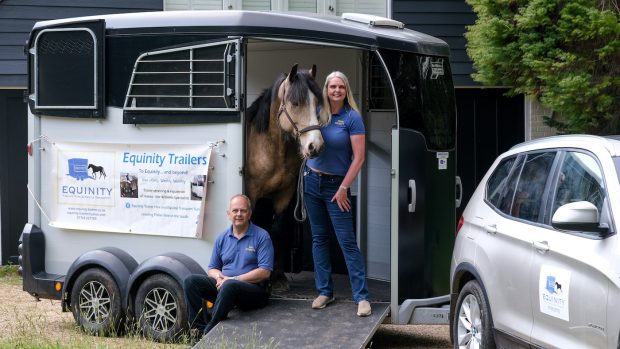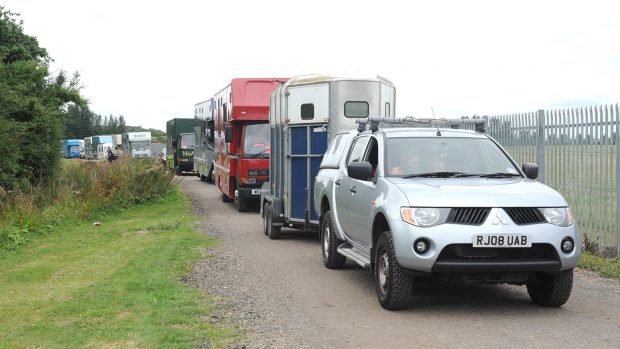If you’re looking to invest in horse transport to get out and about, but only have a small budget, buying a second-hand horse trailer may seem a good option.
But you also need to take into consideration the cost of running a suitable towing vehicle, particularly if this is going to be your main car for day-to-day driving.
Before you start looking at horse trailers for sale, check the towing capacity of your vehicle and that your driving licence covers you for towing. Only individuals who passed their driving test before 1 January 1997 are allowed to tow a horse trailer without taking an additional test*.
When buying a second-hand trailer, you need to give it a thorough inspection to ensure it is safe to use, especially if it has been left standing on wet ground a long period of time.
And you should do everything in your powers to ensure you are not buying a stolen trailer. If you do, you may end up with no trailer and no money to purchase a replacement.
Buying a second-hand horse trailer
Jon Phillips from The Organisation of Horsebox and Trailer Owners offers potential buyers the following tips to help make their purchase a successful one:
Avoid stolen trailers
- Trailers don’t need registration documents like cars and other vehicles, but they are security marked with unique serial numbers to stop theft
- Either ensure the serial number is the same as the number stamped on the chassis, or with Ifor Williams trailers call the company with the chassis code to confirm its identity
- Make sure that the seller has proof of ownership and that the manufacturer’s plate has not been tampered with
- Insist on viewing and buying the trailer from a company or home address rather than a carpark, lay-by or service station
Mechanical checks
- Check the floor and ramp for any areas that are rotton. This applies to both wood and metal materials
- Make sure that the ramp hinges and balance springs are working OK and that the rampcan be easily managed by one person
- Check that the socket connecting the car and trailer’s lights has not been corroded and it is working properly
- Check the pressure of the tyres, that they are not damaged and that the spare wheel is in good condition
- Make sure the hinges, balance springs and tow hitch have been fully greased
- Be suspicious of a recently re-sprayed trailer. It could be a distraction from a more significant problem
Road test the trailer
- Hitch up and take it for a test drive to check that it tows evenly
- Ask when the trailer was last serviced and whether the seller has any paperwork to support that
* The towing law states that drivers who passed their test since 1 January 1997 are not allowed to tow without taking an additional test if the combined weight of the trailer and towing vehicle exceeds 3,500kg. Most two-horse trailers being towed by a suitable vehicle will exceed this weight. Find out more.



